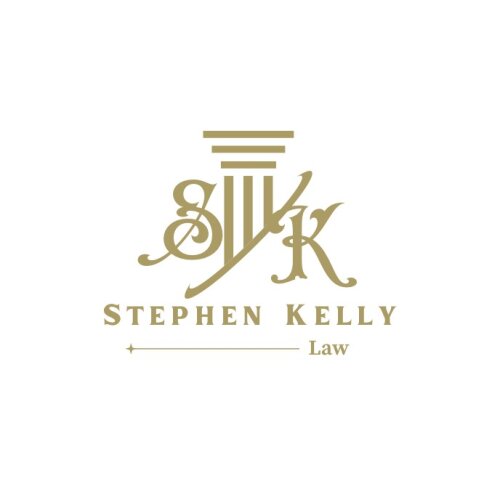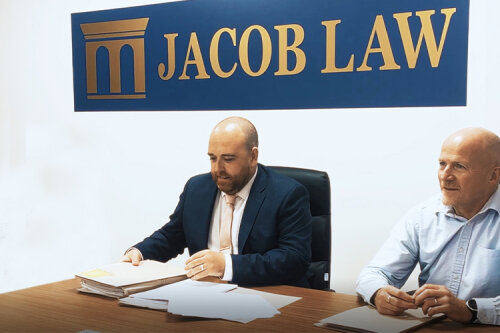Best Landlord & Tenant Lawyers in Ireland
Share your needs with us, get contacted by law firms.
Free. Takes 2 min.
Free Guide to Hiring a Real Estate Lawyer
Or refine your search by selecting a city:
List of the best lawyers in Ireland
About Landlord & Tenant Law in Ireland
Landlord and tenant law in Ireland is a complex area covering the rights and responsibilities of both landlords and tenants. It is governed largely by the Residential Tenancies Act 2004, which has been amended several times to address emerging issues in the rental sector. This law applies to private rented residential properties and aims to balance the interests of both parties, ensuring fair treatment and dispute resolution mechanisms.
Beyond these primary regulations, various other laws and codes of practice play a role, including the Housing (Standards for Rented Houses) Regulations 2019 and the Anti-Social Behaviour Strategy. The Residential Tenancies Board (RTB) is the key organization responsible for overseeing many aspects of residential tenancies in Ireland.
Why You May Need a Lawyer
There are several scenarios where legal assistance may be necessary in landlord and tenant matters:
1. **Lease Disputes:** Disagreements over lease terms or breaches of contract can be complex and may require legal intervention for resolution.
2. **Eviction Processes:** When either party wishes to terminate a lease early or faces issues with eviction, legal guidance can ensure compliance with legal procedures to prevent further disputes.
3. **Rent Arrears:** Issues related to unpaid rent may require legal advice to either negotiate payment plans or pursue legal routes for recovery.
4. **Maintenance and Repairs:** Legal advice can be critical if there are disputes over property conditions, necessary repairs, or if a property fails to meet housing standards.
5. **Deposit Disputes:** Conflicts over the return of security deposits are common and may necessitate legal input, especially if taken to adjudication by the RTB.
Local Laws Overview
Several key aspects of local laws apply specifically to landlords and tenants in Ireland:
1. **Tenancy Registration:** All private landlords must register their tenancies with the RTB. This registration helps protect both parties and ensures compliance with legal requirements.
2. **Rent Control:** Rent Pressure Zones (RPZs) limit how much rents can increase annually in high-demand areas, aiming to keep housing affordable.
3. **Tenant Rights:** Tenants have the right to peaceful occupation, timely repairs, and proper notice for termination of the lease.
4. **Landlord Obligations:** Landlords are responsible for maintenance, ensuring properties meet legal standards, and respecting tenant rights to privacy and quiet enjoyment.
5. **Dispute Resolution:** The RTB offers various dispute resolution services, including mediation and adjudication, to resolve conflicts without resorting to legal proceedings.
Frequently Asked Questions
What rights do tenants have in Ireland?
Tenants have rights including the right to a rent book or receipt, peaceful occupation, timely repairs, notice before eviction, and privacy.
How is rent determined in Rent Pressure Zones?
In RPZs, rent increases are generally capped at the rate of inflation or a set annual percentage, subject to review by relevant authorities.
What is the role of the Residential Tenancies Board (RTB)?
The RTB is responsible for maintaining a register of tenancies, resolving disputes between landlords and tenants, and providing information on rights and obligations.
Can a landlord enter a rented property without notice?
No, tenants have a right to privacy and landlords typically must provide adequate notice (usually 24 hours) and must have a legitimate reason for entry.
What should I do if my landlord refuses to make necessary repairs?
Document the request for repairs in writing, and if unresolved, consider lodging a complaint with the RTB for resolution.
How are issues of anti-social behavior handled?
Landlords should follow the Anti-Social Behaviour Strategy, and if necessary, involve authorities or seek legal assistance for serious cases.
Can a tenancy be terminated before the lease period ends?
Yes, but it must comply with legal notice periods and conditions specified in the lease and applicable tenancy laws.
What happens if I can't pay my rent due to financial difficulties?
Communicate with your landlord immediately to negotiate a possible payment plan; seek advice from support organizations if needed.
What is a “license” and how does it differ from a tenancy?
A license is a permission to occupy a property without exclusive possession, unlike a tenancy which provides greater security and protection under tenancy laws.
How long does it take to resolve disputes through the RTB?
It varies, but the RTB aims to resolve disputes as promptly as possible, typically within a few months, depending on complexity and case load.
Additional Resources
Consider the following resources for more information and assistance:
- **Residential Tenancies Board (RTB):** Offers a wealth of information and services related to tenancies.
- **Threshold:** A national housing charity providing advice and advocacy for tenants.
- **Citizens Information:** Provides comprehensive guides on rights and responsibilities of both landlords and tenants.
- **Local Authorities:** Can provide information on housing standards and dispute resolution in specific areas.
Next Steps
If you require further legal assistance, consider taking the following steps:
1. **Contact a Legal Professional:** Seek a solicitor specialized in landlord and tenant law to discuss your situation and potential solutions.
2. **Engage with the RTB:** If facing a tenancy issue, registering your case with the RTB can be an essential step towards resolution.
3. **Utilize Mediation Services:** The RTB and other bodies may offer mediation services to resolve conflicts without formal legal proceedings.
4. **Document Everything:** Keep detailed records of your tenancy agreements, communications, and any disputes to support your case.
5. **Learn Your Rights and Responsibilities:** Empower yourself with knowledge of your rights and responsibilities to avoid potential conflicts.
Lawzana helps you find the best lawyers and law firms in Ireland through a curated and pre-screened list of qualified legal professionals. Our platform offers rankings and detailed profiles of attorneys and law firms, allowing you to compare based on practice areas, including Landlord & Tenant, experience, and client feedback.
Each profile includes a description of the firm's areas of practice, client reviews, team members and partners, year of establishment, spoken languages, office locations, contact information, social media presence, and any published articles or resources. Most firms on our platform speak English and are experienced in both local and international legal matters.
Get a quote from top-rated law firms in Ireland — quickly, securely, and without unnecessary hassle.
Disclaimer:
The information provided on this page is for general informational purposes only and does not constitute legal advice. While we strive to ensure the accuracy and relevance of the content, legal information may change over time, and interpretations of the law can vary. You should always consult with a qualified legal professional for advice specific to your situation.
We disclaim all liability for actions taken or not taken based on the content of this page. If you believe any information is incorrect or outdated, please contact us, and we will review and update it where appropriate.
Browse landlord & tenant law firms by city in Ireland
Refine your search by selecting a city.














